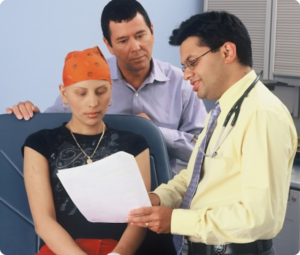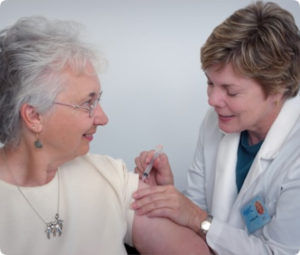2nd January, 2025
Chimeric Antigen Receptor (CAR) T-cell therapy has revolutionized pediatric oncology, offering new hope for children with relapsed or refractory cancers, particularly acute lymphoblastic leukemia (ALL). This innovative treatment involves engineering a patient’s own T-cells to target and destroy cancer cells, leading to remarkable remission rates in young patients.

The CAR T-cell Journey
A pivotal moment in CAR T-cell therapy’s history is the story of Emily Whitehead, the first pediatric patient to receive this treatment. Diagnosed with ALL at age five, Emily faced limited options after standard therapies failed. In 2012, she became part of a clinical trial at the Children’s Hospital of Philadelphia, receiving CAR T-cell therapy. Her cancer went into remission, and she remains cancer-free over a decade later, symbolizing the potential of CAR T-cell therapy in pediatric oncology.
Recent Advances in CAR T-Cell Therapy
Recent studies have expanded the applications of CAR T-cell therapy beyond ALL. For instance, a clinical trial at Stanford University demonstrated promising results using CAR T-cells to treat pediatric brain cancers, including diffuse intrinsic pontine glioma (DIPG). Among 11 children treated, nine showed significant tumor reduction, with one child’s tumor disappearing entirely.
India's Indigenous CAR T-Cell Therapy
In India, the development of NexCAR19 marks a significant milestone. This homegrown CAR T-cell therapy is a collaborative effort between IIT Bombay, Tata Memorial Centre, and ImmunoACT, aiming to provide an affordable treatment option for Indian patients. This anti CD 19 CAR T cell therapy for the management of relapse/refractory leukemias and lymphomas is approved in India. This therapy costs a fraction of similar therapies available in Western countries, enhancing accessibility for many patients.
Safety Considerations
CAR T-cell therapy, while highly effective, can cause mild and manageable side effects. Commonly, Cytokine Release Syndrome (CRS) leads to fever, fatigue, or chills, while neurological symptoms like headaches or mild confusion (ICANS) may also occur. Temporary low blood cell counts can cause fatigue, minor infections, or bruising. Hypotension (low blood pressure), often linked to CRS, causes dizziness but is treatable. These symptoms are usually reversible and manageable with proper medical care.
Conclusion
CAR T-cell therapy represents a transformative advancement in pediatric oncology, offering hope to children with challenging cancers. As research continues to address safety concerns and expand its applications, CAR T-cell therapy is poised to become a cornerstone in the fight against pediatric cancer.
Various cutting-edge cancer treatment such as advanced cellular therapies like CAR T, TCR, TIL therapy, Gamma Delta T – cell Therapy, Gene Therapy, Stem Cell Transplants, and other latest molecular therapies are available at SunAct Cancer Institute. To know more, visit https://sunactglobal.com
References
1. Children’s Hospital of Philadelphia. Emily Whitehead’s Journey. https://www.chop.edu/news/emily-whitehead-first-pediatric-patient-receive-car-t-cell-therapy-celebrates-cure-10-years
2. Cadenaser. Consiguen combatir cánceres cerebrales infantiles con terapia celular CAR-T. https://cadenaser.com/nacional/2024/11/13/consiguen-combatir-canceres-cerebrales-infantiles-con-terapia-celular-car-t-en-uno-de-los-ninos-el-tumor-desaparecio-por-completo-cadena-ser
3. Press Information Bureau (PIB), Government of India. NexCAR19. https://pib.gov.in/PressReleaseIframePage.aspx?PRID=2017169
4. National Cancer Institute. CAR T-Cell Therapy Secondary Cancers. https://www.cancer.gov/news-events/cancer-currents-blog/2024/car-t-cell-therapy-second-cancers




